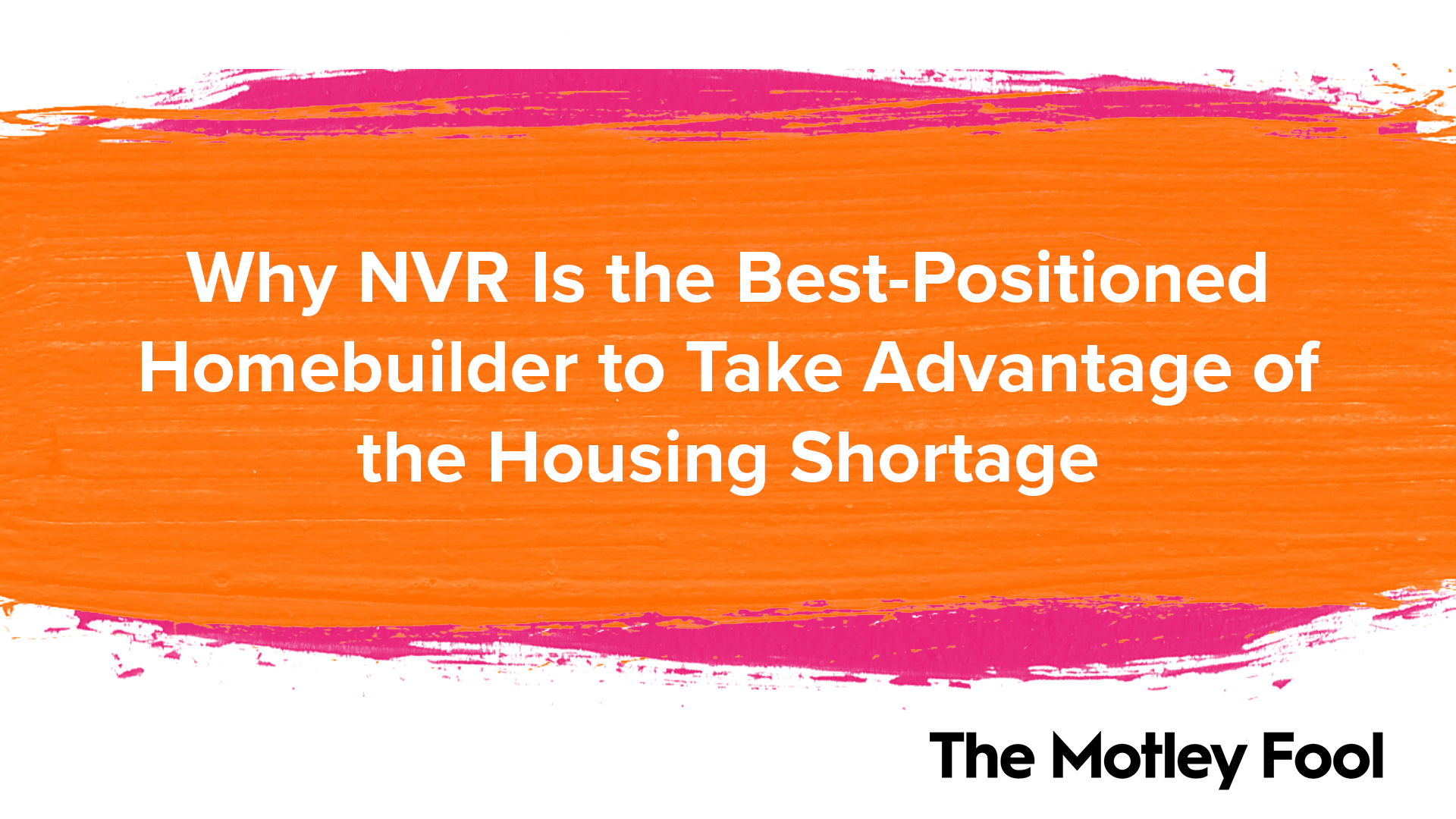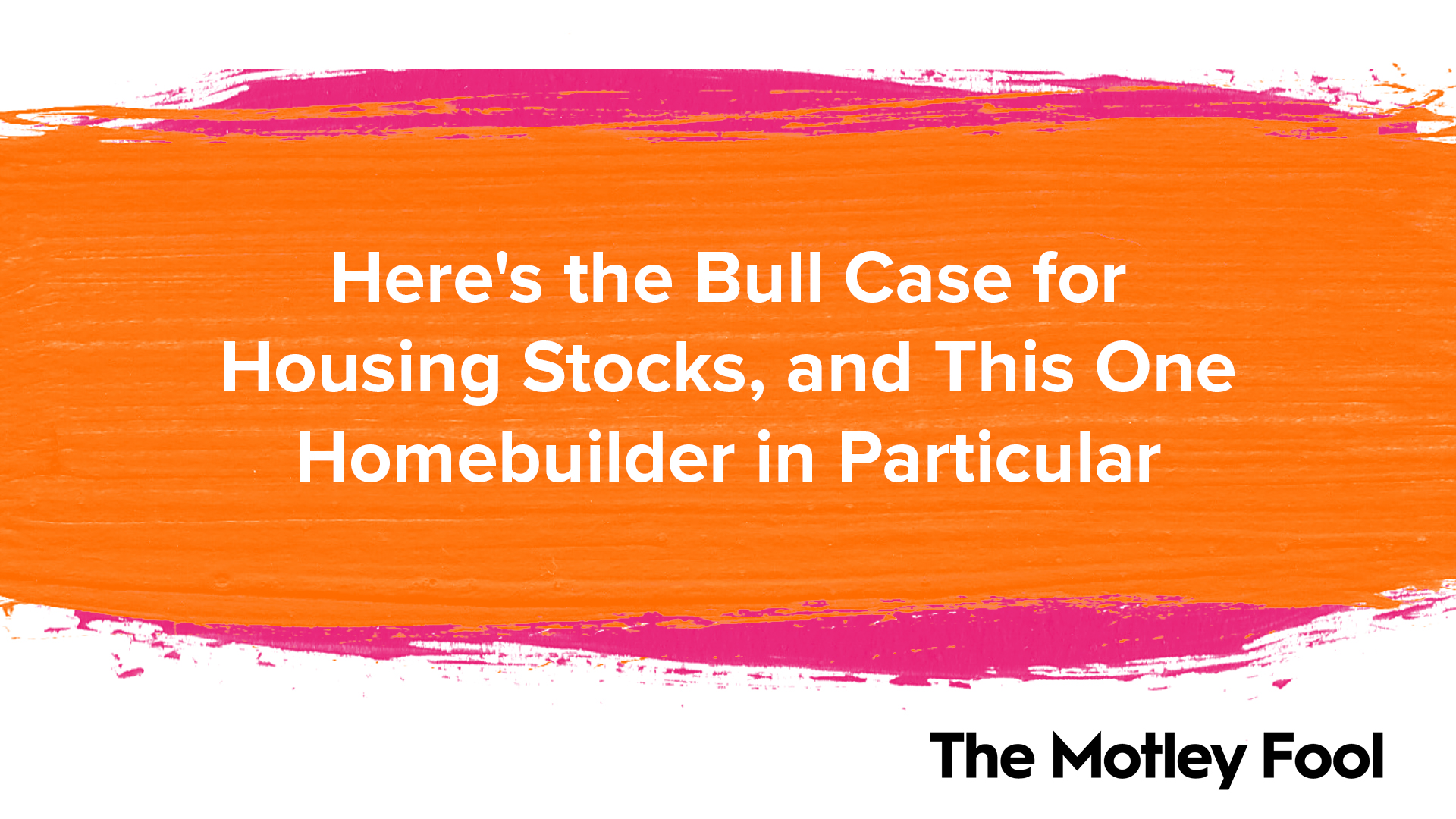Many signs point toward continued strength in the housing market in 2017. Interest rates remain at historically low levels, and less restrictive lending standards are making it easier to obtain mortgage financing. Combine that with a relatively strong economy that's delivered steady job and wage growth in recent years, and you have the necessary conditions for rising demand for new homes and sustained house-price appreciation.
For investors, the challenge lies in identifying the businesses best positioned to profit from these trends. It turns out we can invest in one such business today. Read on to learn more about it.

Image source: NVR, Inc.
Like other homebuilders, NVR Inc. (NVR 0.57%) stands to benefit from the general undersupply of homes for sale in many areas of the country. Since the financial crisis and subsequent housing-market collapse, homebuilders have been slow to ramp up production, with new housing supply falling short of demand every year since 2009. This underproduction has resulted in inventory shortages that some economists believe could evolve into a "housing emergency" if builders don't begin to construct more homes to meet growing demand.
Yet it's not just favorable industry tailwinds that make NVR a solid buy today: The company has a unique business model that places it head and shoulders above rival homebuilders in terms of its profitability metrics, risk profile, and investors' returns.
The core of NVR's strategy is to use lot purchase agreements -- basically, option contracts on finished lots -- as opposed to the traditional method of buying the land outright and paying the full cost upfront. This approach allows NVR to secure the rights to these lots for only a fraction of their total cost -- typically 10% or less -- and maintain the option to acquire and take position of a given lot only after a home is sold and construction is about to begin. In turn, NVR's risk is limited should land values deteriorate, while the company also increases its financial flexibility.
The benefits of this approach were on full display during the housing collapse, during which NVR was able to remain profitable even as many of its competitors racked up billions of dollars of losses.
NVR Net Income (Annual) data by YCharts.
Another key aspect of NVR's strategy is an emphasis on local market concentration. NVR strives to be the dominant builder in each of its markets, and the local economies of scale it achieves allow it to leverage its employees, market knowledge, and relationships with land developers. In turn, NVR is able to reduce costs and achieve higher returns on capital than its rivals can.
NVR Return on Invested Capital (TTM) data by YCharts.
Management remains committed to passing on those strong returns to shareholders in the form of stock buybacks. Since the end of 2012, NVR has repurchased 25% of its outstanding shares. And the company has cannibalized more than 60% of its own shares since the turn of the century -- something that's helped propel NVR's stock to gains of more than 5,000% during that time.
Yet even after these spectacular gains, NVR's shares still trade at an attractive valuation at about 19 times analysts' estimates for this year and only 16 times their projections for 2018. That's a fair price to pay for a high-quality business that's forecast to grow earnings at a greater than 15% annualized clip over the next half-decade.
All told, investors seeking to profit from the growth of the U.S housing market should consider NVR -- the class act of the U.S. homebuilders and a stock that appears poised to reward investors handsomely in the years ahead.









